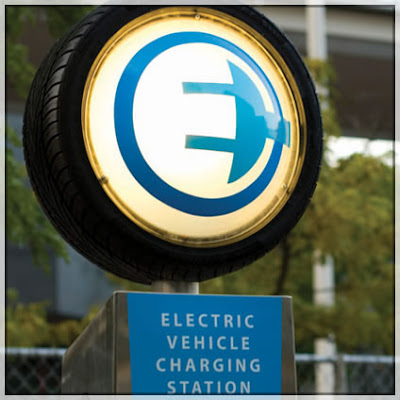"Nissan Electric Leaf on the roads and GM Volt delivered on time will bring that necessary macro catalyst for market perception shift, when people will realise that Electric Cars are for real this time and this news from Detroit are very encouraging.
We will give another "Big IF" today - what if people will decide that it is just Cool not to kill environment any more? All articles about Electric Cars polluting more then conventional ones are showing us the pain of change and that we are on the right way and it is serious to consider as a threat to conventional wisdom."
We will give another "Big IF" today - what if people will decide that it is just Cool not to kill environment any more? All articles about Electric Cars polluting more then conventional ones are showing us the pain of change and that we are on the right way and it is serious to consider as a threat to conventional wisdom."
"Electrification of our transport sector is, of course, not just a major step forward in our effort to decarbonize American society, it means much more in terms of the enhancement of national security and the preservation of national wealth."
David W. Crane President & CEO, NRG Energy, Inc.Testimony before the U.S. Senate Committee on Environment & Public Works October 28, 2009
David W. Crane President & CEO, NRG Energy, Inc.Testimony before the U.S. Senate Committee on Environment & Public Works October 28, 2009
The Electrification Coalition is a nonpartisan, not-for-profit group of business leaders committed to promoting policies and actions that facilitate the deployment of electric vehicles on a mass scale in order to combat the economic, environmental, and national security dangers caused by our nation’s dependence on petroleum.
The Coalition’s primary mission will be to promote the deployment of electric vehicles on a mass scale through a wide variety of policies and actions, including the creation of electrification ‘ecosystems,’ limited geographic areas where electrified vehicles and infrastructure can be introduced so the concept can take root and grow.
Electrification of transportation would allow cars and light trucks to run on energy produced by a diverse set of sources: nuclear, natural gas, coal, wind, solar, geothermal and hydroelectric. In the process, electrification would shatter the status of oil as the sole fuel of the U.S. ground transportation fleet. In short, electrification is the best path to the fuel diversity that is indispensable to improving the nation’s economic strength, environmental health, and national security.
But electrification at a mass scale presents complex challenges that must be analyzed and solved if policymakers are to act. The individual elements of an electrified transportation system—cars, batteries, recharging infrastructure—make up a highly-integrated system, in which every part depends on the other. We would see few results if we began selling batteries in the Northeast, created a smart grid and expanded recharging infrastructure in the Northwest, and introduced more electric cars in the deep South.
In November 2009, the Coalition released its Electrification Roadmap, a sweeping report outlining a vision for the deployment of a fully integrated electric drive network. The report details the dangers of oil dependence, explains the benefits of electrification, describes the challenges facing electric cars—including battery technology and cost, infrastructure financing, regulatory requirements, electric power sector interface, and consumer acceptance issues—and provides specific and detailed policy proposals to overcome those challenges."
The Coalition’s primary mission will be to promote the deployment of electric vehicles on a mass scale through a wide variety of policies and actions, including the creation of electrification ‘ecosystems,’ limited geographic areas where electrified vehicles and infrastructure can be introduced so the concept can take root and grow.
Electrification of transportation would allow cars and light trucks to run on energy produced by a diverse set of sources: nuclear, natural gas, coal, wind, solar, geothermal and hydroelectric. In the process, electrification would shatter the status of oil as the sole fuel of the U.S. ground transportation fleet. In short, electrification is the best path to the fuel diversity that is indispensable to improving the nation’s economic strength, environmental health, and national security.
But electrification at a mass scale presents complex challenges that must be analyzed and solved if policymakers are to act. The individual elements of an electrified transportation system—cars, batteries, recharging infrastructure—make up a highly-integrated system, in which every part depends on the other. We would see few results if we began selling batteries in the Northeast, created a smart grid and expanded recharging infrastructure in the Northwest, and introduced more electric cars in the deep South.
In November 2009, the Coalition released its Electrification Roadmap, a sweeping report outlining a vision for the deployment of a fully integrated electric drive network. The report details the dangers of oil dependence, explains the benefits of electrification, describes the challenges facing electric cars—including battery technology and cost, infrastructure financing, regulatory requirements, electric power sector interface, and consumer acceptance issues—and provides specific and detailed policy proposals to overcome those challenges."

No comments:
Post a Comment